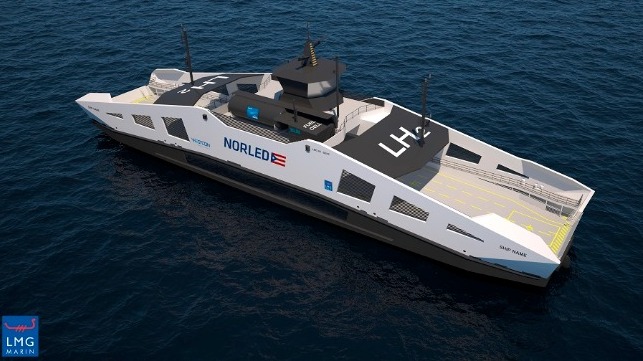Norwegian Shipowners Aim to Go Carbon Neutral by 2050

The IMO's greenhouse gas target calls for an ambitious 50 percent reduction in CO2 emissions by 2050, but the Norwegian Shipowners' Association has set a goal that is twice as challenging. In a statement, the association announced Tuesday that Norwegian shipping companies aim to hit the IMO 2050 target two decades early and to achieve climate neutrality across the entire fleet by 2050
"The UN Intergovernmental Panel on Climate Change has given [the world] ten years to halve greenhouse gas emissions, and maintains that they must drop to zero by 2050. Climate change must be taken seriously. If we are to succeed in curbing its effects, we must act quickly," the association said.
In order to achieve this target, Norwegian shipowners have pledged to order only zero-emissions vessels after 2030. In this context, "zero-emission vessels" means vessels designed to operate without emissions during most of their time at sea. They may be equipped with backup power sources that generate some emissions for a few operating hours a year, the association clarified. Backup power aside, this would be a dramatic decline compared to previous emission levels.
By setting out this strategy now, before the technology is fully available, the Norwegian Shipowners’ Association wants to send a message to engine manufacturers and shipyards that significant resources should be devoted to developing and commercializing zero-emission solutions as quickly as possible. The commercial bonus: as ever, Norwegian shipping sees business opportunity in going first.
"Norwegian shipping is taking a leading role by setting ambitious goals for the development of new and profitable green technology," says Harald Solberg, CEO of the Norwegian Shipowners' Association. "We have high ambitions, even in areas that today do not have commercially available technological solutions. We believe ambitious goals will help accelerate the necessary development. This means that the entire industry, in collaboration with the authorities, both nationally and internationally, must engage in developing new solutions."
The strategy also entails advocating an international ban on fuel types that are not climate neutral after 2050. This would help ensure fair treatment for all vessels from all flag states, minimizing regulatory loopholes.
